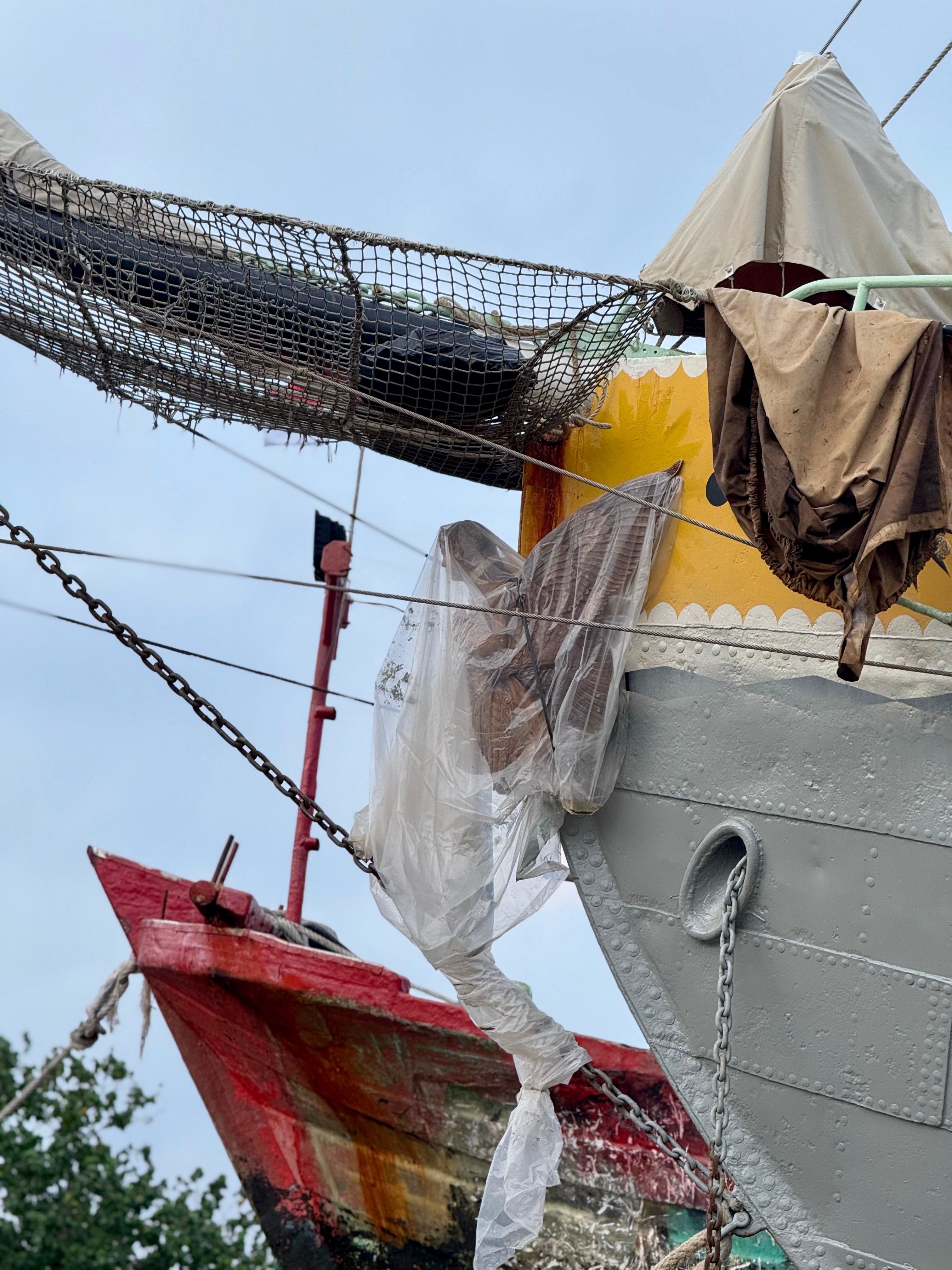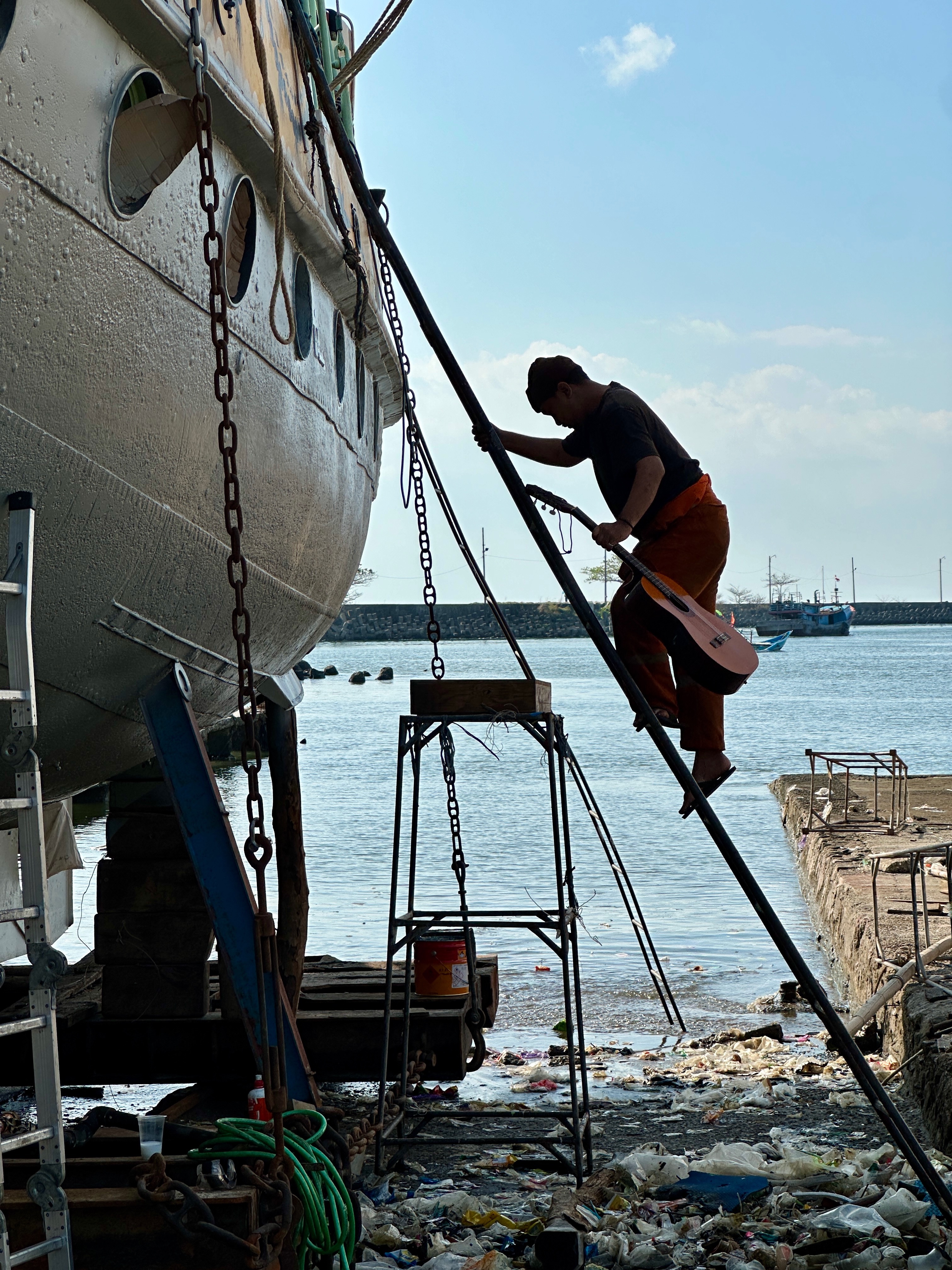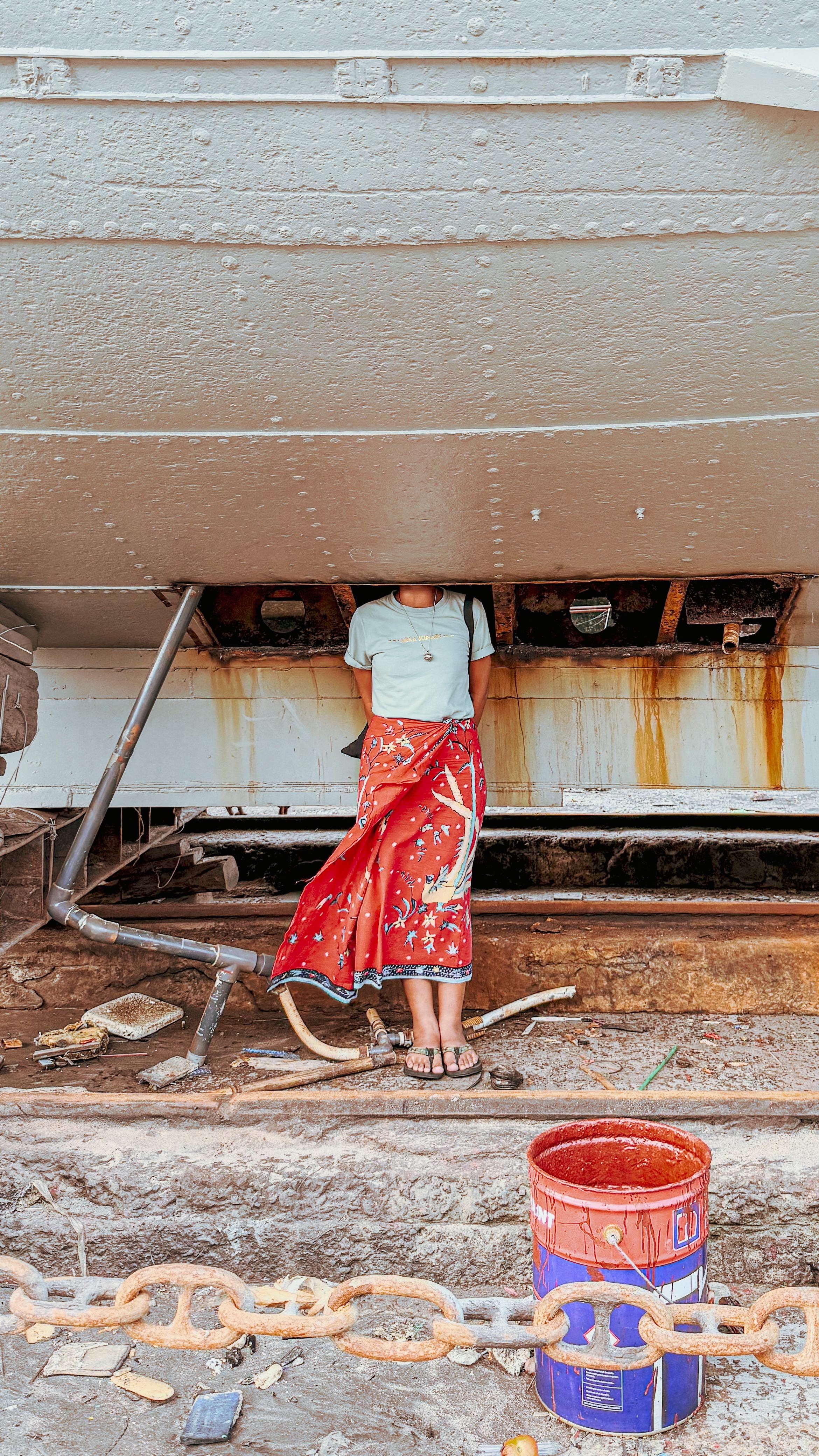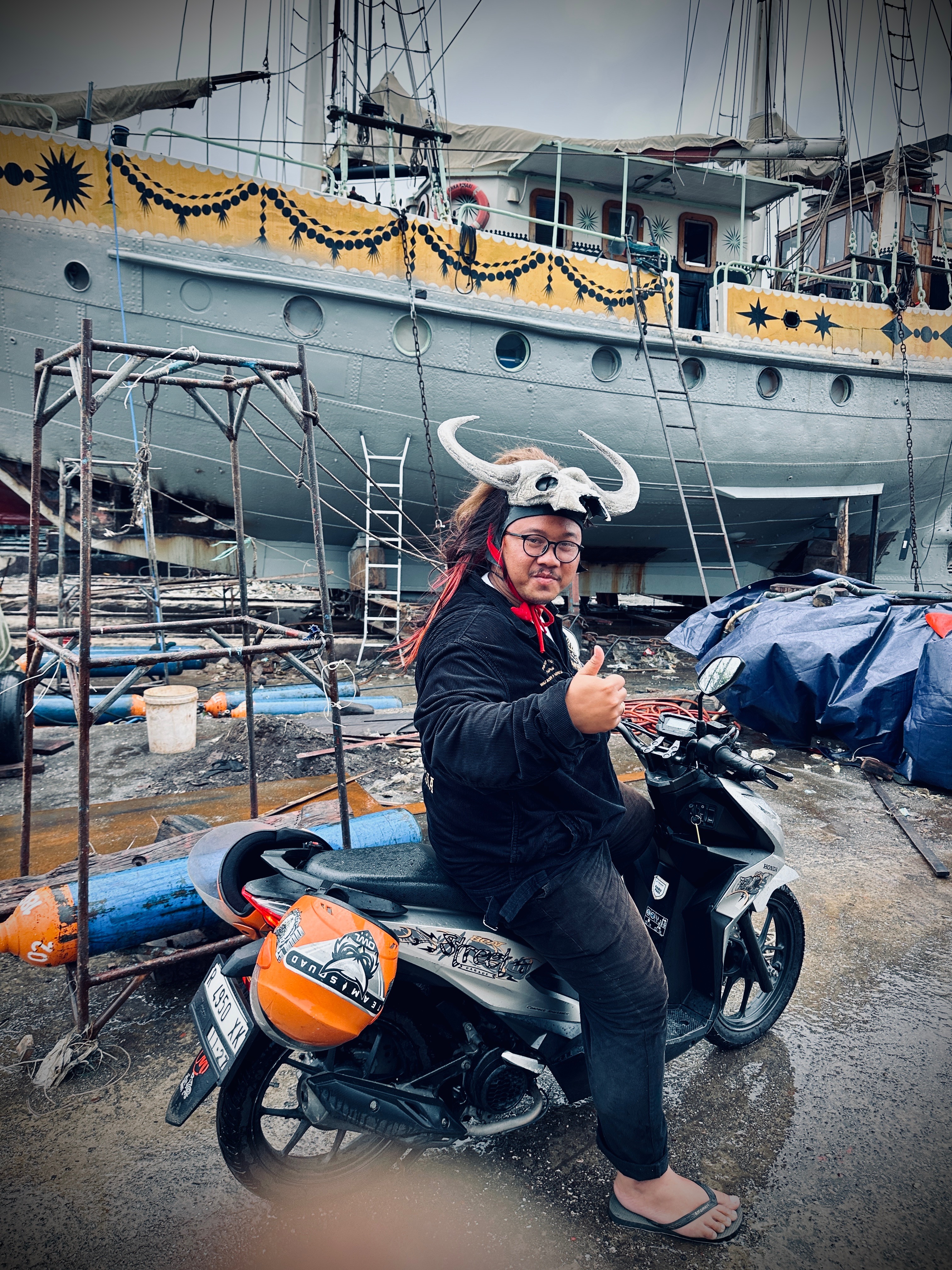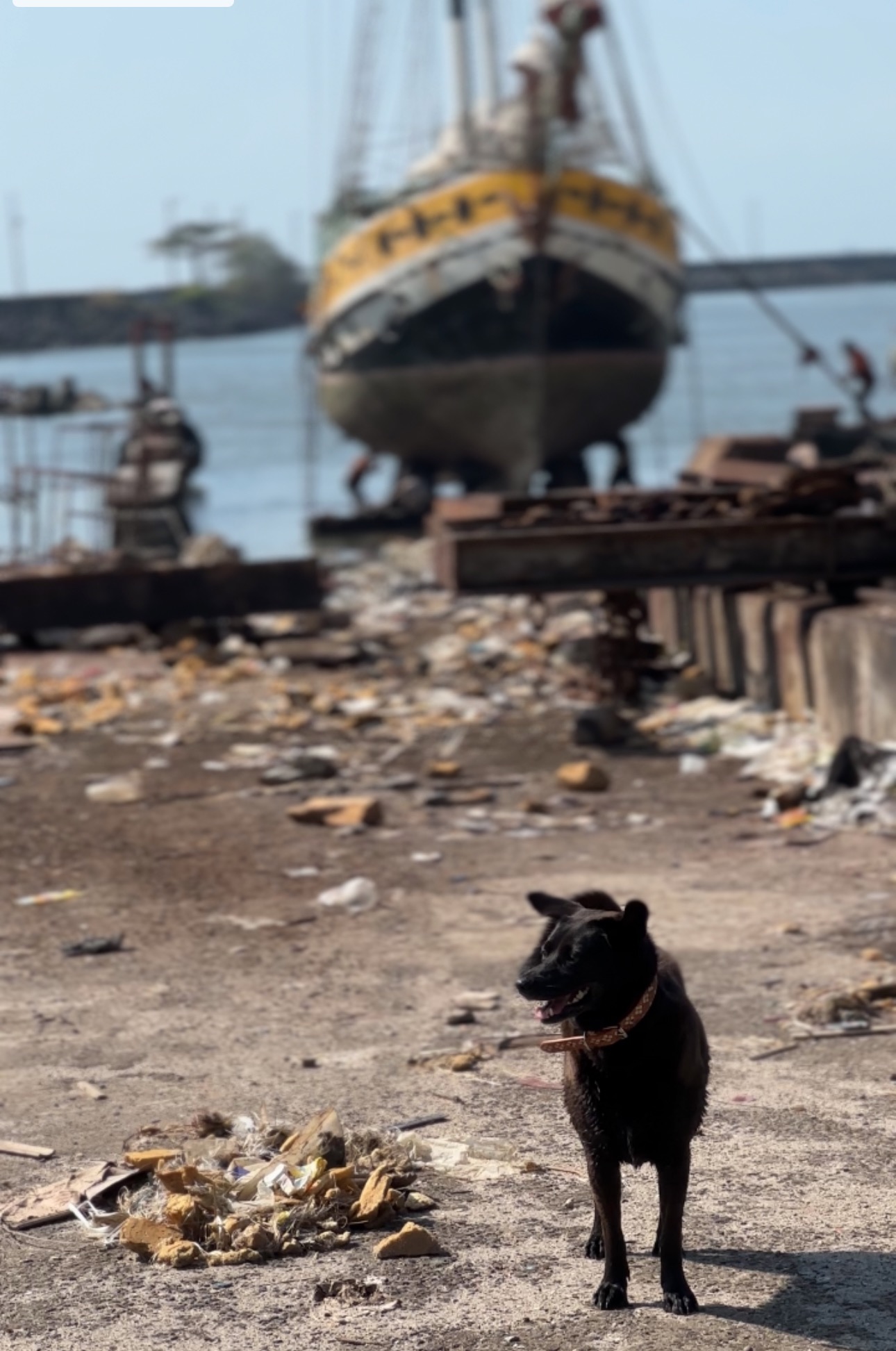Six years ago a group of artists and sailors came together to launch Arka Kinari – a sixty-ton sailing ship that transforms into a floating stage and cultural platform to sound the alarm for climate change.
We’ve since voyaged to over twenty countries, reaching the world’s most remote peoples and places. Right now we’re in our home waters of Indonesia, an archipelago nation in an age of rising seas.
Arka Kinari stops anywhere from stilt villages to megacities, sharing performances, workshops, archiving rare musics and networking the cultural and ecological activists to catalyze a movement.
Along the way, the ship and her international crew have survived cyclones, tornadoes, fires, shredded sails and waterlocked engines, all while navigating through uncharted seas and corrupt ports.
Over the last six years the ship and her international crew have survived cyclones, tornadoes, fires, shredded sails and waterlocked engines, all while navigating through uncharted seas and corrupt ports.
Time and time again we persevered.
This year we started a westward journey that will bring us to India, the Red Sea, and finally the Mediterranean. Although before crossing the Indian ocean we’d planned to drydock in December to finally tackle some long overdue deep maintenance.
But the ship had other ideas.
Two weeks ago, on the south coast of Java, we were damaged by a storm and made an unplanned stop in Cilacap, a small city squeezed between an oil refinery and a prison island.
After a week of repairs, we were ready to say our goodbyes to the local communities of artists & fishermen. But, during our farewell performance, we got an emergency call from the crew onboard.
There was a leak in hull, and the engine room was taking on water.
It started as a pinprick in the bottom of the ship, then burst into a geyser as the sea started rushing in.
Things were already desperate when our best emergency pump got tangled in an engine belt, breaking both. We were going down... fast.
The crew cut the anchor chain to get free immediately, and rammed the ship into the shallows to keep her from sinking completely, meanwhile the local fisherman showed up with all the pumps they could muster, even a rice farmer came with his field pump.
Those pumps got us afloat again, although the hole in the ship was plugged only by the oily mud we’d just scraped from the bottom of Cilacap's industrial harbor, and still slowly taking on water.
What followed was 48 more hours of hell, as we tried to recover the anchor we'd ditched, dragged all over the harbor by the winds and river currents, got tangled in a heap of fishing nets, all while running our pumps every fifteen minutes to keep from sinking. Meanwhile another team was racing around to different regional fishing harbors, trying to find an available shipyard with deep enough access for a sailing boat's keel. Of the three places we visited only the sketchiest, dirtiest, most dilapidated shipyard had deep enough water... in theory. We approached at noon, and struggled for hours to get the ship on their janky rail system, before giving up and trying again at the next hight tide... midnight. Still leaking like a sieve, a storm came crashing down on us as we labored until three in the morning to lift the ship. Success. Out of the frying pan and into the fire.
Where are we now? Not somewhere we want to be.
Ostensibly this is a shipyard, but it looks more like a steampunk rubbish dump. Arka Kinari is perched on rail above a smoldering heap of plastic trash and rotting fish. This is our home for a few weeks, as we orchestrate this symphony of welding machines, cutting torches, grinders, jackhammers and saws, to rip away all the rotten steel and install new plates.
We’re dealing with the problems that are far bigger and earlier than expected. Without time to prepare the ship, research options, buy materials, and compare bids, this is everything everywhere all at once, and that's not cheap.
Please throw us a life ring, so that we can get out of here, and back on mission, as safely and quickly as possible. You will literally float our boat.

